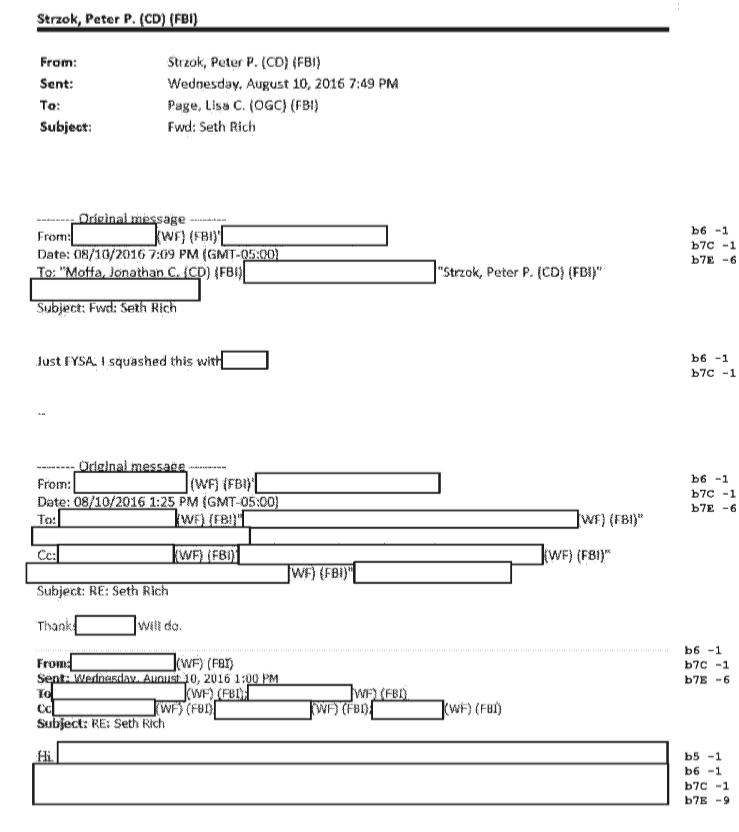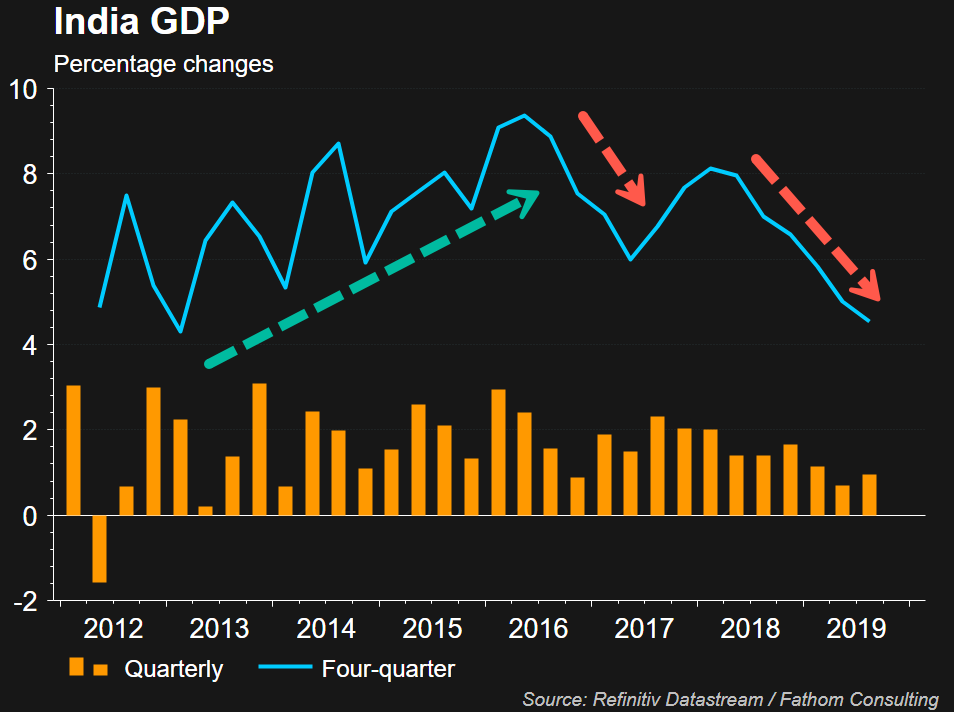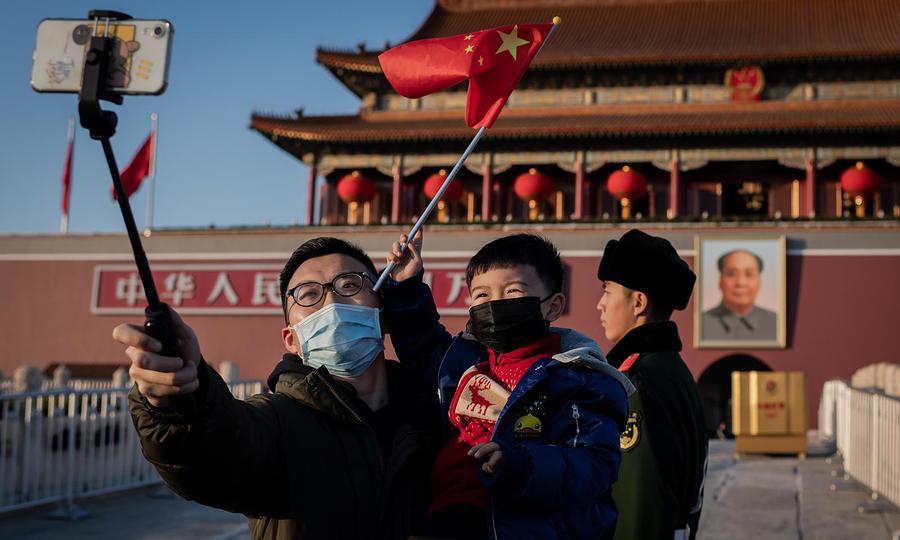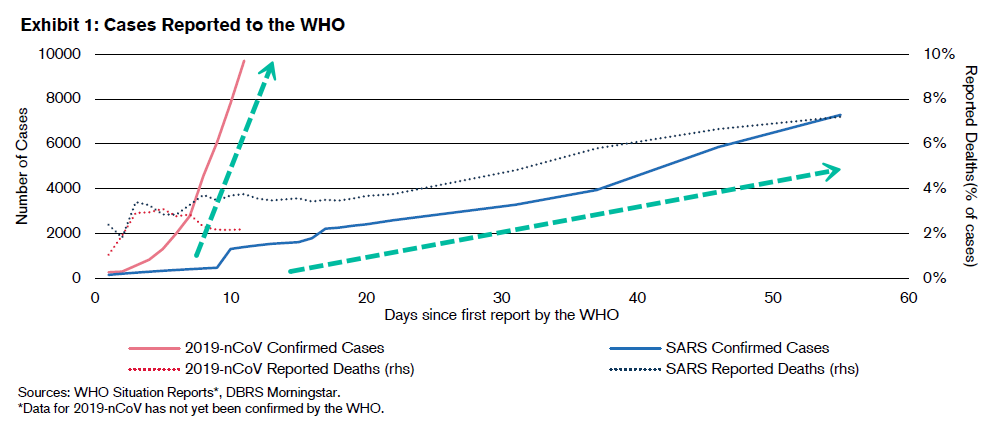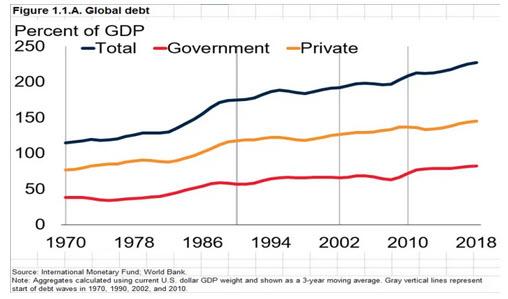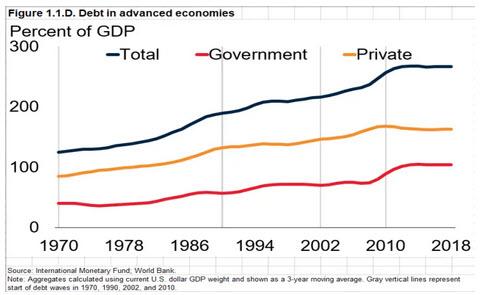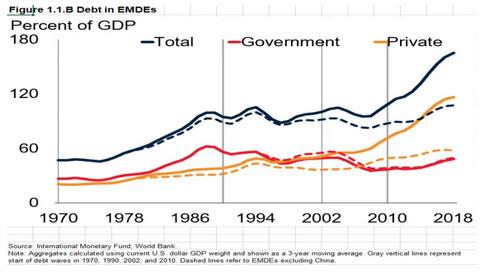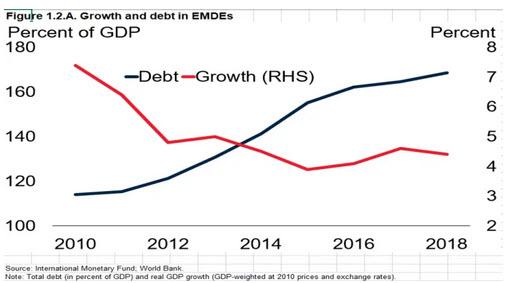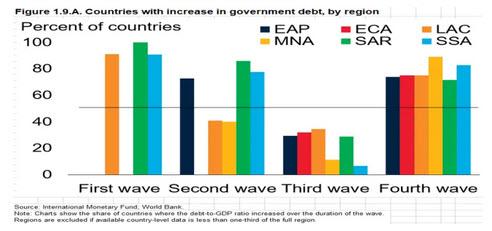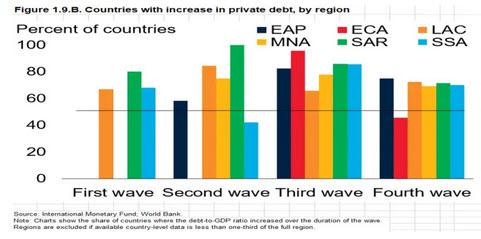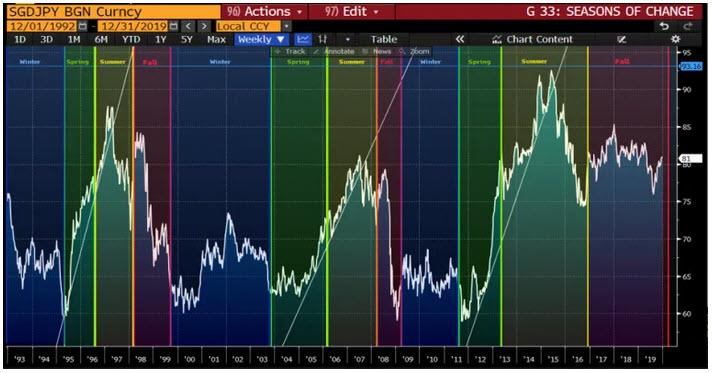Are The World Elite Using A Rise In Nationalism To Reassert Globalisation?
Putting yourself in the mind of someone who commits an act of illegality is perhaps the only way we can begin to understand the motivation behind the transgression. A common reflex reaction to the most heinous of crimes is to simply call for the perpetrator to be removed from society and put in prison. Out of sight, out of mind. Whilst this is not an unreasonable expectation, it does not get to the root of why he or she became a criminal.
We can take a similar stance when it comes to globalism. If a self appointed elite who permeate institutions like the Bank for International Settlements and the IMF share a desire to concentrate world power through a centralised network of global governance, rather than simply rebel against this vision is it not equally as important to try and understand the vision from the perspective of those who created it? I would argue that to comprehend the minds of global planners it is necessary to mentally place yourself into their way of thinking.
A couple of years ago I published an article called, Order Out of Chaos: A Look at the Trilateral Commission, where I examined some of the key motivations behind this particular institution’s goals. I quoted past members of the Commission openly rejecting national sovereignty and championing the interdependence of nations. One of those quotes was from Sadako Ogata, a former member of the Trilateral Commission’s Executive Committee, who at an event to mark 25 years of the institution remarked how ‘international interdependence requires new and more intensive forms of international cooperation to counteract economic and political nationalism‘.
Shortly after the Trilateral Commission was founded in 1973, one of its members, Richard Gardner, wrote an essay for Foreign Affairs magazine (the official publication of the Council on Foreign Relations). In ‘The Hard Road to World Order‘, Gardner emphasised the objective of dismantling national sovereignty:
In short, the ‘house of world order’ will have to be built from the bottom up rather than from the top down. It will look like a great ‘booming, buzzing confusion,’ to use William James’ famous description of reality, but an end run around national sovereignty, eroding it piece by piece, will accomplish much more than the old-fashioned frontal assault.
With Britain in the process of leaving the European Union, you could argue that one of the main planks of the Commission’s agenda has failed. If the global elite want the integration of European nations, and for the majority of those nations to be controlled through a centralised behemoth like the EU, surely seeing the UK become independent from the union goes against everything they believe in? Not necessarily.
Back in 2014 and before globalists began touting political protectionism / nationalism as a danger to financial stability, the Trilateral Commission published a paper called,’Credible European Governance‘. Within the paper the UK’s membership of the single market is discussed, an issue which has been central to the narrative on Brexit since the referendum:
A debate on competences has been launched by the British government on Britain’s future position in Europe where reference is made to the Single Market. Today, most EU countries accept that the euro area represents what President Van Rompuy calls the “symbolic heart of the European Union”. For the United Kingdom, the single market is the essence of the EU. Can these two visions continue to coexist within the EU, now that the euro area is surmounting its “existential crisis”?
I asked in 2017 whether this passage in particular was not only questioning the UK’s position inside the single market, but by extension it’s membership of the European Union. It was the same paper that quoted Jean Monnet, one of the founding fathers of the European Union:
People only accept change when they are faced with necessity, and only recognize necessity when crisis is upon them.
As I have discussed in previous articles, this philosophy gives credence to the theory that crisis scenarios, rather than being a detriment to the aspirations of globalists, present an opportunity to further their grip on power.
At the latter end of 2015, just months before the EU referendum, the Commission produced another paper conceived by four David Rockefeller fellows – ‘EUROPE’S NEW NORMAL: SIMULTANEOUS CRISES THAT THREATEN TO UNRAVEL THE EU‘. The authors wrote at length about the growing distrust of ‘ever closer union‘ following the European debt crisis that originated after the collapse of Lehman Brothers:
Many Europeans have come to suspect that the EU’s institutions have become overly powerful and some think that they have even used the latest crises for a further power grab.
A solution put forward by the fellows was that ‘some flow into the opposite direction might help Europeans to regain trust in the European process‘.
This was my response published back in 2017:
One interpretation of this remark is that countries be granted a platform to express their grievances with the European Union, perhaps even to the point of seeking renewed independence or opting to withdraw from the bloc altogether. From their own perspective the union desires a sharing of sovereignty rather than individual expressions of it. Therefore, a nation instigating a greater level of autonomy (dubbed protectionism / populism in some quarters) might eventually suffer lasting consequences given the steadfast and federalist nature of the supranational EU. Over time countries demonstrating more nationalistic tendencies could quite easily unravel into crisis. Especially if separation from the union results in a nation being compromised economically. In this scenario, might those same Europeans opposed to further integration become more receptive to the idea?
The ultimate question then is whether the outbreak of a ‘crisis’ is organic, in the sense that it happens beyond the control of government and globalist institutions. Or whether instances such as Brexit were designed to happen to further the agenda for more power. You may ask why the UK would be permitted to leave the EU when the objective is for ‘ever closer union‘. But without Brexit and further instances of a rise in ‘populism‘, calls for reform have no traction. Crisis must either originate or be instigated to achieve the desired response from the electorate. Calling for reform inside a vacuum of no discernible unrest on a geopolitical level leaves institutions like the EU exposed to greater scrutiny.
Moving forward to the present day, last week Chatham House published an article (Managing the rising influence of nationalism) that was part of a special report from the World Economic Forum titled, ‘Shaping a Multiconceptual World‘.
Here, Chatham House observed that ‘the process of globalization demanded that all states adapt to being part of a shared project and subject themselves to its norms and laws‘, and that ‘the European Union became the vanguard of this process of post‑nationalism.’
They identified that European identity was essentially anti-nationalist in nature. But the growth of nationalism witnessed throughout Europe over the past five years has distorted this belief. Combating it will require ‘investing over the coming years in the legitimacy of major international institutions such as the United Nations, World Trade Organization, and the International Monetary Fund.’
According to Chatham House, without investment, ‘these institutions will find they are increasingly ineffective.’ In short, the advent of a new wave of nationalism has created a narrative that global bodies will require more power to shore up both trade and economic stability now and into the future.
At the same time this article was published, it was announced at the World Economic Forum that businessman George Soros is to launch a ‘global network of higher education‘ against nationalism, with investment of $1 billion. By coincidence or otherwise, Chatham House is involved in the initiative. Here is what Soros himself said about it:
I believe that as a long-term strategy our best hope lies in access to quality education, specifically an education that reinforces the autonomy of the individual by cultivating critical thinking and emphasising academic freedom.
The tide turned against open societies after the crash of 2008 because it constituted a failure of international co-operation. This in turn led to the rise of nationalism, the great enemy of open society.
But is a resurgence of nationalism really the ‘great enemy‘ that Soros makes out, given that crisis on a global scale invariably leads to opportunity? One example is from an op-ed written by former IMF Deputy Director Mohamed A. El-Erian, who in 2017 questioned whether a rise in populism and nationalism throughout the world could be remedied by revamping the IMF’s Special Drawing Rights:
So, do today’s anti-globalisation winds – caused in part by poor global policy coordination in the context of too many years of low and insufficiently inclusive growth – create scope for enhancing the SDR’s role and potential contributions?
We have seen as well how the EU and the World Trade Organisation have presented proposals for the wide scale reformation of the WTO in the wake of renewed nationalism. And as regular readers will know, central banks led by the BIS and IMF are rapidly advancing plans to reform global payment systems and introduce digital currencies. These were not public considerations prior to the likes of Brexit. They only started to gather momentum after nationalism became a permanent fixture on the geopolitical landscape.
The overriding sentiment from globalists has been that a combination of political and economic protectionism is a direct threat to financial stability. The IMF, the BIS and the World Bank have all over recent months been ramping up warnings about the dangers of an impending economic downturn. Two weeks ago the IMF’s new Managing Director Kristalina Georgieva commented at the Peterson Institute of International Economics in Washington:
We have to learn the lessons of history while adapting them for our times. We know that excessive inequality hinders growth and hollows out a country’s foundations. It erodes trust within society and institutions. It can fuel populism and political upheaval.
As well as the IMF, the start of 2020 saw the World Bank warn of a impending global debt crisis and how persistently low interest rates might not be enough to stave off a downturn. In the autumn of 2019 the BIS warned how an unsustainable rise in leveraged loans could jeopardise the financial system. The IMF joined them a few weeks later by declaring that ‘accommodative monetary policy is supporting the economy in the near-term, but easy financial conditions are encouraging financial risk-taking and are fuelling a further build-up of vulnerabilities.’
The one issue binding all these warnings together is trade protectionism, which stems directly from the resurgence in political nationalism.
Beyond the global economic houses, France’s President Macron said in 2018 that in relation to trade conflict, ‘economic nationalism leads to war.’ BHP boss Andrew Mackenzie said in August 2019 that the rise of nationalism presented a risk to the global economy. Even China and Russia have spoken out against the build up of trade protectionism, saying it will compromise the global economy.
Now is the time to put yourself into the mind of a globalist. Whether it be the Innovation BIS 2025 project or the UN’s Agenda 2030 sustainability goals, what circumstances would benefit these people the most in furthering their ambitions? What would have to occur for the elite to gain widespread public support for policies that would fundamentally change our way of life? If an increased break out of trade protectionism and political populism triggered an economic collapse, would this impair the autonomy of global institutions? Or would it serve to reinvigorate them in the sense of scapegoating nationalism as being responsible for the rupture of the ‘rules based global order‘ founded after World War Two?
From a globalist perspective, national sovereignty – the independent nation state – has no place in an interconnected world. It is an outmoded concept. The goal is always to further centralise power. But by what means exactly?
Recall what Richard Gardner said back in 1974: ‘an end run around national sovereignty, eroding it piece by piece, will accomplish much more than the old-fashioned frontal assault.’
The institutions cited in this article are not ignorant to the plight of the global economy. The policies enacted since 2008, from near zero interest rates and trillions of dollars in quantitative easing measures to rising interest rates and quantitative tightening, has brought the financial system to where it is today. Central banks know perfectly well the effect their policies have on the health of economies, evidenced by comments from Federal Reserve chairman Jerome Powell back in 2012:
Right now, we are buying the market, effectively, and private capital will begin to leave that activity and find something else to do. So when it is time for us to sell, or even to stop buying, the response could be quite strong; there is every reason to expect a strong response.
Meanwhile, we look like we are blowing a fixed-income duration bubble right across the credit spectrum that will result in big losses when rates come up down the road. You can almost say that that is our strategy.
From a UK standpoint, the country’s departure from the EU may appear on the surface to be rallying against the tide of globalism. But my concern is that globalists will successfully manage to position Brexit and the spectre of a global trade conflict as causes for an economic collapse, when in fact it is monetary policy over the last twelve years which will be the primary culprit.
Rather than heavy handedly marching into western nations and claiming their sovereignty, I would be concerned that the global elite will allow nationalist movements to fall on their own sword, and for the onset of a series of crises to consume geopolitics throughout the next decade. The job then would be to implement a whole raft of reforms and to educate the next generation on the perils of self determination.
The realisation of a ‘new world order‘ means tearing down existing structures, or at the very least jeopardising them to the point of collapse, to facilitate the new. Out of resurgent nationalism may come a swathe of centralised directives that make today’s level of globalisation seem tame by comparison.
https://ift.tt/391IbbB
from ZeroHedge News https://ift.tt/391IbbB
via IFTTT





